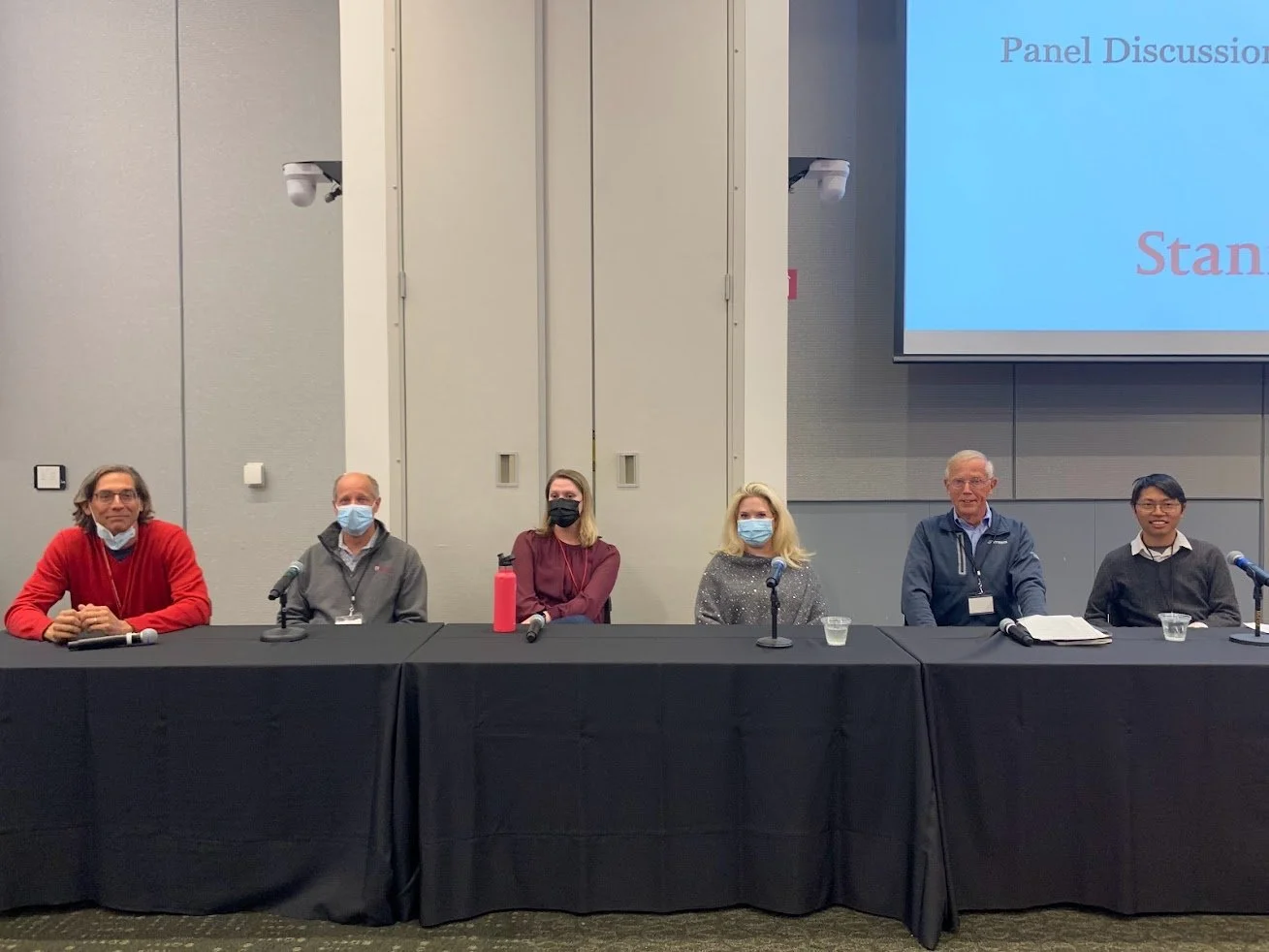6th Annual Frontiers in Diabetes Research Symposium
Tuesday, April 12, 2022 9AM-4PM
As in past years, the 2022 Frontiers in Diabetes Research Symposium brought together the diverse topics and groups that make up the superb research base of the SDRC. A vital goal of the SDRC is to foster collaborations among these star researchers to enhance the quality and outcomes in diabetes research. The symposium was enthusiastically attended by 117+ attendees and the discussions generated during the symposium will form the foundation for future collaborative projects between SDRC members. The SDRC includes 124 members throughout Stanford University. The symposium presented an opportunity for trainees of these member labs to share their research via scientific posters and the following are the star trainees who received awards for best poster and runner up prizes:
Bomi Lee – Best Clinical Research Poster Award for her work titled "Characterization of circulating immune profiles in the spectrum of acute and chronic pancreatitis from a multi-center consortium"
Gemma Zhao – Best Basic Research Poster Award for her work titled "Identification of an extracellular regulator of hepatic fructose transport"
Brianna Leverenz – Runner-Up Clinical Research Poster Award for the work titled "Youth with Type 1 Diabetes Benefit From Early Continuous Glucose Monitoring Initiation Irrespective of Diabetes Ketoacidosis at Diagnosis: 4T Pilot Study Results"
Rolande Meudom – Runner-Up Basic Research Poster Award for the work titled "pH-dependent insulin formulation with increased aggregation stability and faster in vivo action"
This year, a new element was added to the Frontiers Symposium - a panel discussion on the topic of “Stem-Cell Derived Islet Replacement: Promise and Challenges”. The panel discussion brought together physicians, immunologists, stem cell biologists and patient advocates to discuss stem cell-based treatments for Type 1 diabetes. Despite significant progress, the field still has important challenges ahead, including the need to improve pancreatic differentiation methods, preventing immune rejection of transplanted pancreatic cells, the scalability and affordability of such therapies, and clinical trial designs to test such candidate therapies. Despite these remaining challenges, interestingly all panelists thought that we will see effective stem cell-based treatments for Type 1 diabetes within our lifetimes!
Li Ka Shing Center for Learning and Knowledge
Berg Hall
291 Campus Drive
Stanford CA 94305


